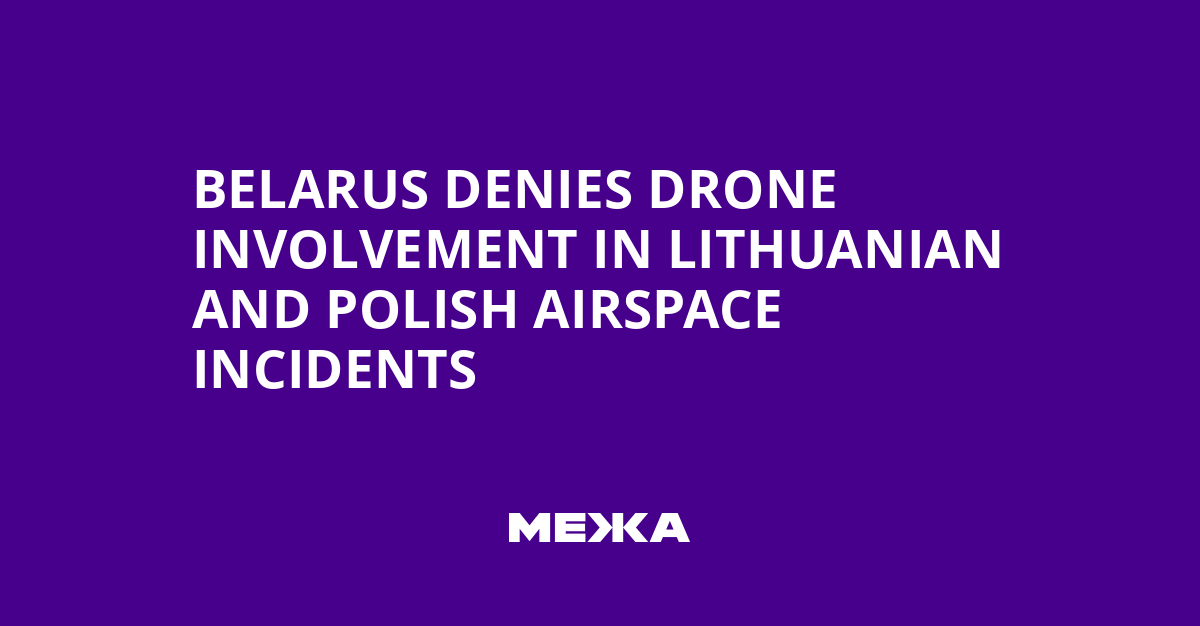The President of Belarus, Alexander Lukashenko, stated that Minsk allegedly has nothing to do with drones crossing Lithuania’s and Poland’s airspace. The information was reported through official channels.
According to the regime’s leader, Minsk “calmly responds through the appropriate channels” to incidents with neighboring countries, and, as claimed, Belarus even spent resources to destroy drones that were heading toward Poland.
“If they hovered after we downed half of the drones, not knowing whose they were, which… We shot them down, and that’s all. A few of them we couldn’t hit. We spent enormous resources to destroy these drones that were not heading for us – they were heading toward Poland. And they were told how many, and where the drones were flying”
– Alexander Lukashenko
Additionally, Lukashenko called to stand up to “Poland’s designs” and to decipher them, without detailing his actions.
Context of airspace violations and NATO’s response
In the night of September 10, Russian drones violated Poland’s airspace. The military carried out an operation to neutralize them, for the first time shooting down targets over the country’s territory. Prime Minister Donald Tusk informed NATO Secretary General Mark Rutte and stated that Poland does not plan to impose additional restrictions. According to Tusk, Poland shot down about four of the nineteen drones that violated its airspace; one drone damaged the roof of a house and a car in the village of Wiriki-Wola in the Lublin Voivodeship, debris from others was found in several settlements. A NATO meeting is also scheduled to discuss the response to the incident.
The Kremlin declined to comment, but the Russian Defense Ministry stated that during the attack on Ukraine on the night of September 10 they allegedly used long-range drones up to 700 kilometers, which “allegedly crossed the border with Poland.” Russian official representatives expressed readiness to hold consultations with Poland’s Defense Ministry regarding this incident.
Analysts note that such reports only heighten tensions in the region and underscore the need to strengthen airspace control and interstate dialogue to prevent new contentious incidents.
